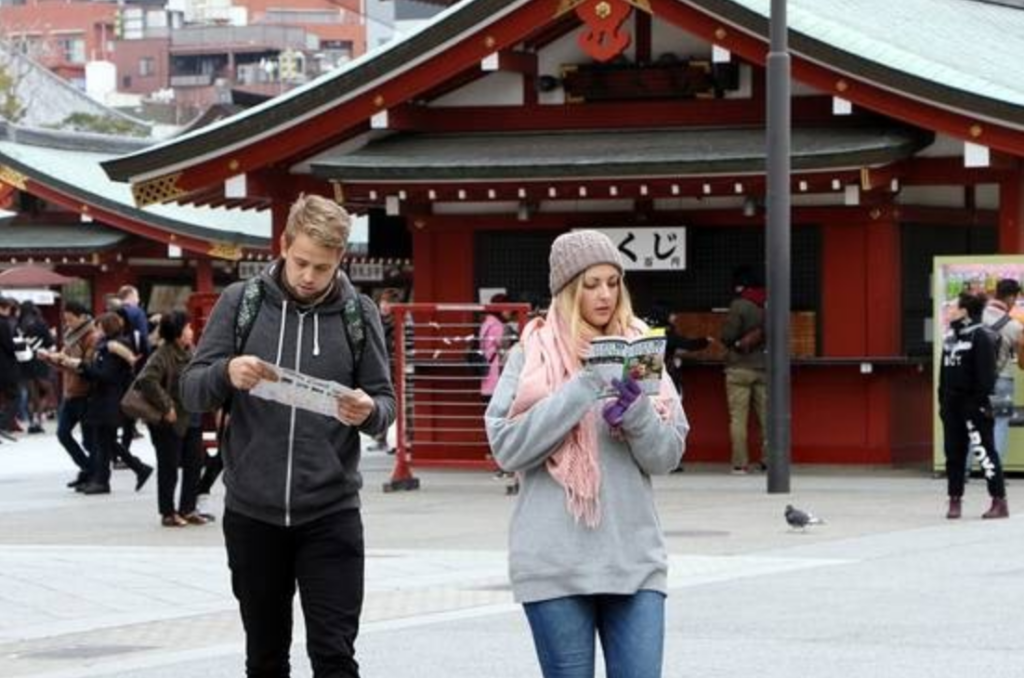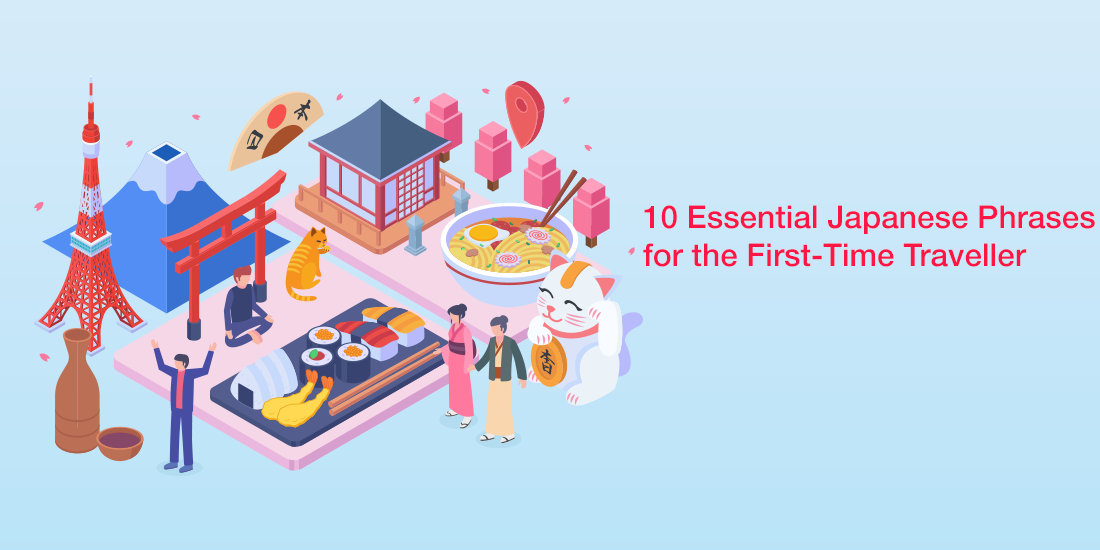Japan is the land of the rising sun and also an amazing country filled with heritage, serenity, panoramic views, and amazing delicacies. It is in the top three most-visited countries in Asia-Pacific and for all the good reasons. We’ll be sharing about some places in Japan you’d not want to miss, and 10 essential Japanese phrases for a first-time traveller to Japan.
Wouldn’t it be a memorable experience being able to communicate smoothly with the locals in their own language?
If you’re like us and you want to get the most authentic and memorable experience on your trip to Japan, this article is a must-read!

Caucasian Tourists in Japan
Here’s Why Japan Is That Great
The Japanese people
They are the epitome of kindness and courtesy. People would go out of their ways to make sure things get done even if that means putting themselves at an inconvenience and discomfort.
For instance, it’s raining and you’re in a cab. You’ve reached your destination and the driver did two things that we don’t see often in Singapore or other countries. Firstly, he/she would ask if you have an umbrella or not.
Secondly, if you don’t they’d offer to shelter you with theirs, and insist until you’re safely shielded from the rain and under shelter.
That being said, some tourists may come across some locals who appear “cold”. But it’s only because of cultural differences.
For example, a Caucasian from the US might take waving or nodding at strangers completely normal. But in Japan, and most Asian countries such as China, India or Singapore, we would simply stare back blankly. It is because we’ve been raised to be on the reticent as a gesture of respect and manners.
Kindness is a character contributed by upbringing and culture amongst other factors. But with a culture like Japan, there’s a high chance that they are very kind-natured and helpful.
In addition, being able to speak Japanese or some Japanese phrases can really give the locals a kind surprise. Plus, you’ll be able to ask for help and directions or even recommendations from them. After all, they are really nice people.
Japan is squeaky clean
Finding trash on the ground in Japan is equivalent to finding a rare gem. The Japanese people pride themselves in their surroundings and environment. They have a cooperative sort of mentality where it doesn’t matter who’s trash it is — what matters is that our country is clean.
If you’re staying in Japan for long, this might just rub off you and start to form a good habit to bring back to your own country.
10 Essential Japanese Phrases For A First-Time Traveller
Good morning, good afternoon, and good evening
Konnichiwa also translates as “good afternoon,” so it’s best used during the day. In the morning, you can use おはようございます (Ohayou gozaimasu), and in the evening, こんばんは (konbanwa).
How to say Please
There are a couple of different japanese phrases to say “please” in Japanese. The most universal one is ください. It means “please,” and you’d use it to ask a favor of almost anyone.
For instance, if you’re at a restaurant, you can say メニューをください (Menyu- o kudasai) to say “Please give me a menu.”
Thank you
“Thank You” in Japanese – ありがとうございます (Arigatou gozaimasu)
Excuse me or Sorry
“Excuse Me” in Japanese – すみません (Sumimasen)
When you want to get someone’s attention, you can say すみません, followed by your question or request. You can also use this to ask someone (politely) to move, or even to apologize in place of “sorry.”
That phrase they say before eating
いただきます is a unique Japanese phrase. It’s used like “let’s eat” in English or “bon appetit” in French. But it’s original meaning is “I humbly receive” and it’s always said before every meal, even when you eat alone. It’s a way to give thanks for the food, almost like saying grace.
What to say when someone treats you to a meal
After a meal, you always say ごちそうさまでした. It means “thank you for the food,” and you’d say it to whoever treated you to your meal or cooked your food. Even if you paid for or made your own meal, you say this as an expression of gratitude to have food to eat.
“Can I get one of this, please.”
The Japanese phrase 一つをください (Hitotsu o kudasai) means “one, please.” You can use it to ask for one ticket, one pastry, one of anything while you’re out. Simply point and say Hitotsu o kudasai.
Yes and No
“Yes” and “No” in Japanese – はい (Hai) and いいえ (Iie).
Asking for names
“What’s Your Name?” in Japanese – お名前は何ですか (O-namae wa nan desu ka).
How are you?
“How are you?” in Japanese – お元気ですか (O-genki desu ka).
Japanese Text Translation or Japanese Phrases Translation?
Do you need Japanese texts translated immediately? Contact us today and learn more about how we can help you with your Japanese translation needs.









